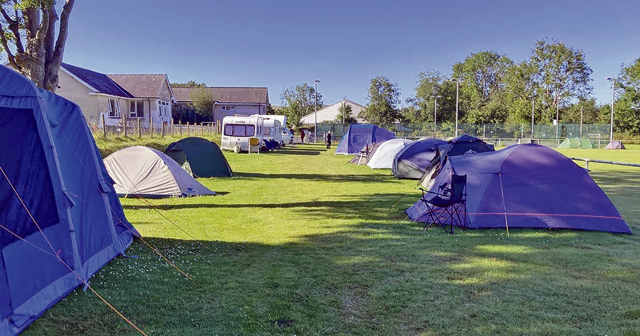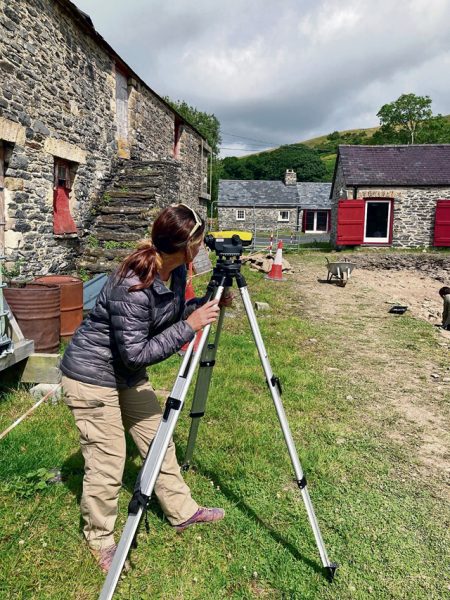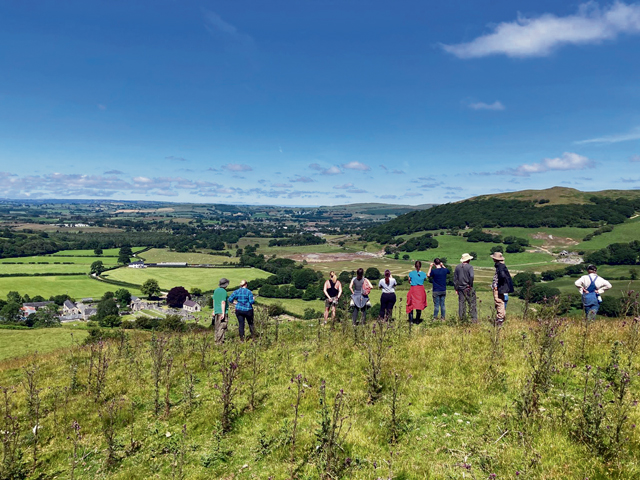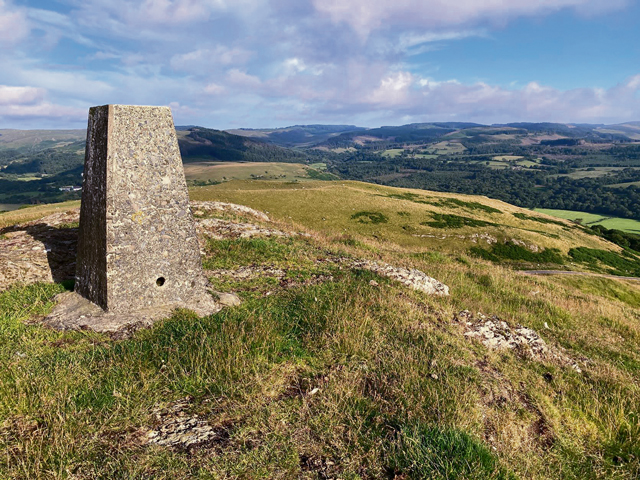
One warm summer day I found myself in Wales sitting in the dirt by a stone ruin, listening to the sounds of sheep baying and trowels scraping the dry ground. Hunched over a piece of crumbly deteriorated glass, I carefully brushed away the hard compacted soil surrounding it.
This piece and the few others found in the same area over the next weeks came from the grounds of a medieval abbey complex — Strata Florida — whose arched ruins have begun to represent Welsh history.
Working at an archaeology dig
Spending a week on the ground doing archaeology grunt work was one of the most fascinating trips I’ve ever taken. Full board was provided – and the food was great! Participants camped out in the nearby village of Pontrhydfendigaid.
We rode the minibus, or walked the local footpaths through sheep fields, the 1.5 miles between camp and the dig site. We breaked for teatime, listened to interesting archaeological talks, and spent evenings at the local pub.

Uncovering Welsh history
The Strata Florida abbey was founded in 1164, and its name comes from the Welsh Ystrad Fflur, or Valley of Flowers. The large abbey complex became a center for medieval Welsh culture.
The Brut y Tywysogion (Chronicle of Princes), a record of Welsh history dating from 682 to 1282, was maintained by the monks at Strata Florida. The first Prince of Wales, Llywelyn the Great, held council here.
Each day of my weeklong trip there was a unique find to come out of the ground. One participant found a coin dating from around the 1200s. There was a pottery piece with medieval fingerprints still visible, and a day when we dug out numerous animal bones from a trash pile. And then there were those diamond-shaped bits of glass.

The calm Cambrian mountains
The area around Strata Florida is not on the typical tourist track, which means it’s the perfect place for an active outdoor vacation. Near the middle of Wales, it lies at the western side of the rolling Cambrian mountains with numerous walking and mountain biking trails.
One evening I hiked a hilltop at the entrance to the valley where there are the remnants of an iron age hillfort; another fort on the opposite side of the valley are poised to protect the area.

Learning archaeology skills
Other nearby archaeological sites, like ancient stone structures and holy wells, indicate that the Strata Florida area has likely been a sacred spot for thousands of years.
Being on an active archaeological dig gives new perspective to travel. It allows you to hyper focus on the local history and really get to know an area. It is also surprisingly calming and meditative.
I spent days on the ground digging, sure, but also got the chance to learn other skills. I learned to clean finds, draw plans, take survey levels, and use geophysical imaging gear.
Strata Florida Archaeology Field School
The Strata Florida Archaeology Field School is known for being the most inclusive dig in the U.K. Newcomers to archaeology are very welcome. People with differing abilities are also welcome.
In addition, the school has partnered with an organization called Breaking Ground Heritage to study the positive effects that archaeological work can have toward the physical and mental health of military veterans.
The Strata Florida trust will again run digs next summer (2023); expect updates and registration to be available on the website this winter. Participants 18+ (14+ with an adult) are welcome. The field school can be attended for 1-4 weeks, and participants receive training credit in the official U.K. Archaeology Skills Passport. Single “digger days” are also an option for those not wanting to commit a full week.
For more information:
www.stratafloridatrust.org
breakinggroundheritage.org.uk
www.thecambrianmountains.co.uk
Due to regulations to prevent the spread of COVID-19, bookings and trips may be cancelled or postponed, and travel to neighboring countries may not be allowed.
Please verify the status before making plans to attend.
For U.S. government employees, including service members, remember to always follow command regulations, which may be different than host nation policies.


